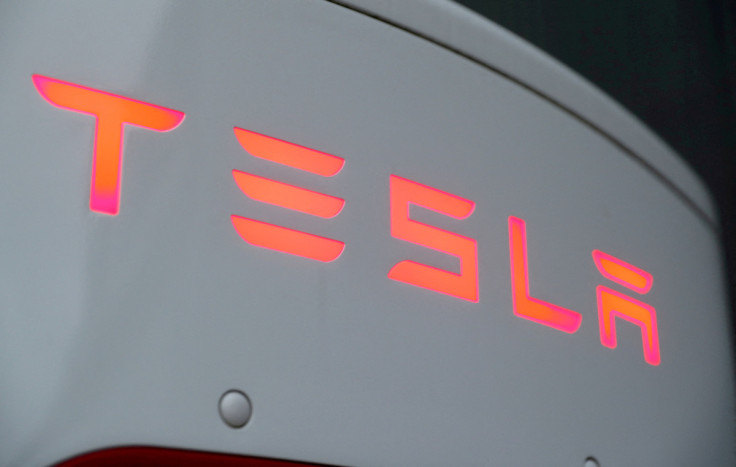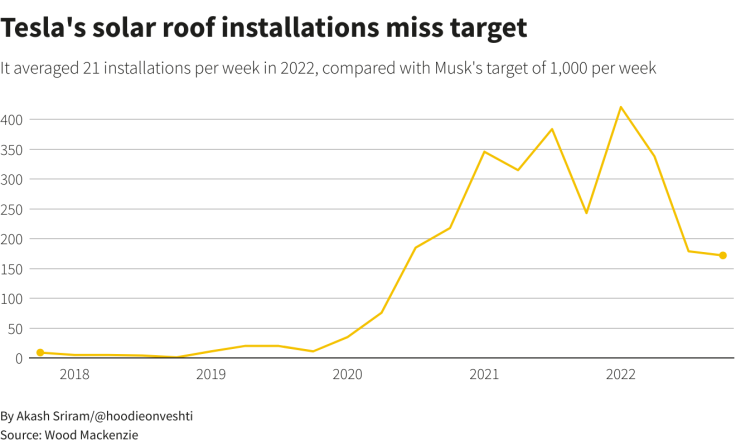Tesla Misses Big On Solar-roof Installation Targets - Wood Mackenzie

Elon Musk-led Tesla Inc has missed its solar-roof installation targets by a big margin due to stiff competition from GAF Energy and other rivals, according to industry analysis firm Wood Mackenzie.
Tesla's average installations per week were just 21 in 2022 and its best quarter saw 32 systems installed per week.
That was far lower than the company's 1,000-per-week target for 2021. Musk had not provided a forecast for 2022.
"GAF Energy's Timberline Solar roofing system is better-positioned to achieve widespread adoption," said Max Issokson, analyst at Wood Mackenzie.
The potential of Tesla's Solar Roof will rely on the company's ability to simplify and streamline installations and tap into a broader customer base, Issokson added.
(Graphic: Tesla's solar roof installations miss target -

)
Tesla, which did not immediately respond to a request for comment, said in January that it had more than 85 installation partners.
GAF Energy, which launched Timberline Solar last year, has 280 partners that sell and install its product, the company's president Martin DeBono told Reuters.
"The reason we are able to have a building integrated offering at the same cost as a new roof and new solar is we've reduced labor content," DeBono said, adding labor for roofing and electrical was the biggest challenge.
Tesla, the world's most valuable automaker, acquired SolarCity in 2016. At the time, Musk aimed to create a solar product that would generate power through solar panels on roofs and store energy in batteries.
That was in contrast to most other solar roofing companies, which only sell and install the solar panels.
Tesla's combined energy-generation-and-storage solution deployed at several houses and commercial applications has withstood strong winds and hurricanes.
Wood Mackenzie had earlier said that SolarCity captured a third of the solar panel market in 2015, after which Tesla's share decreased to about 0.2% in 2021.
© Copyright Thomson Reuters {{Year}}. All rights reserved.





















